Substance use disorder negatively affects millions of Americans. Alcoholism or drug addiction might sound more familiar to you than substance use disorder, which is a broad term for the abuse of alcohol, illegal drugs, or prescribed medications. At Crosspointe Recovery, we assist individuals suffering from substance use disorders to overcome it for good.
What is Substance Use Disorder?
Substance use disorder is a disease that affects the brain and behavior of an individual, causing them to lose control over their use of a substance. A “substance” can be legal, illegal, or controlled but they are all psychoactive compounds with the potential to cause addiction. There are seven classifications of substances including:
- Opioids—Painkillers including heroin, opium, codeine and narcotics
- Depressants—Substance that reduce anxiety and sleep problems, including drugs like barbiturates and benzodiazepines (like Valium or Xanax)
- Stimulants—Substances which stimulate the brain and nervous system like cocaine, methamphetamine and methylphenidate (drugs used to treat ADHD).
- Hallucinogens—Substances that cause a person to hallucinate, including LSD, mushrooms, PCP, and mescaline
- Nicotine—Cigarettes, vapor-cigarettes (electronic cigarettes), chewing tobacco and snuff
- Cannabinoids—Marijuana or hashish
- Alcohol—All forms
The cause of substance use disorder isn’t known, but certain biological, psychological and genetic factors are associated with substance abuse like a person’s genes, depression, anxiety, stress, and emotional distress. Environmental and social factors like interpersonal, household, and community dynamics as well as family, social networks and peer pressure also strongly influence the likelihood of substance use disorder.
How to Tell if I have a Substance use disorder
The first step to recovery is identifying substance use disorder as the problem. The symptoms of substance use disorder vary depending on the substance. Recognizing an unhealthy relationship to substances can be hard to distinguish, but chronic use of substances like drugs and alcohol take a toll on the body and mind so there are some general possible signs physical and behavioral signs of substance use disorder.
Physical Health Issues Associated with Substance Abuse
- Lack in energy
- Weight loss or gain
- Insomnia
- Frequent nose bleeds or runny nose
- Physical symptoms of withdrawal, like nausea, vomiting, muscle pain, headaches, or even run a fever or have seizures
- Deteriorating hygiene
- Irregular heartbeat
- Excessive sweating
- Sore jaw
Behavior Issues Associated with Substance Abuse
- Lack of motivation and self-esteem
- Loss of interest in hobbies or family activities
- Paranoia
- Feeling an excessive need for privacy or secrecy
- Problems at work or school
- Difficulty paying attention
- Forgetfulness
If you’re worried some of these signs indicate a problem but you’re still unsure, here are some further signs that indicate a substance use disorder:
- You continued taking a drug after it is no longer needed for a health problem
- You have built a tolerance to a substance, which requires you to take more to feel the same effects
- You have difficulty setting limits with the substance or use it more often than you intended to
- You can’t stop yourself from using the substance, even if you want to stop
- You spend a lot of time thinking about the substance, whether it’s how you feel taking it, how you’ll get more, or when you’ll take it next
- You have trouble doing normal day-to-day activities and taking care of yourself
- You’ve lost interest in doing things you previously enjoyed
- You borrow or steal money to pay for drugs
- You’ve been arrested or hospitalized because of your substance use
- Your substance use has hurt your relationships with other people
How to Get Help for a Substance use disorder
If you think you have a problem, don’t hesitate to seek help right away. The sooner you can get help the better. Substance use disorder is a serious condition that is hard to solve on your own because it can change the parts of your brain in charge of self-control. Quitting can be difficult, even if you feel ready, but treatment and recovery are possible with the help of trained professionals. At Crosspointe Recovery, we understand the difficultly of overcoming substance use disorder, and work to help break old habits and implement new behaviors by focusing holistically on our patients. If you think you have a substance use disorder, we are here to help! Contacts us to talk to our compassionate, professional team members to see how you can take the first step in your recovery.





